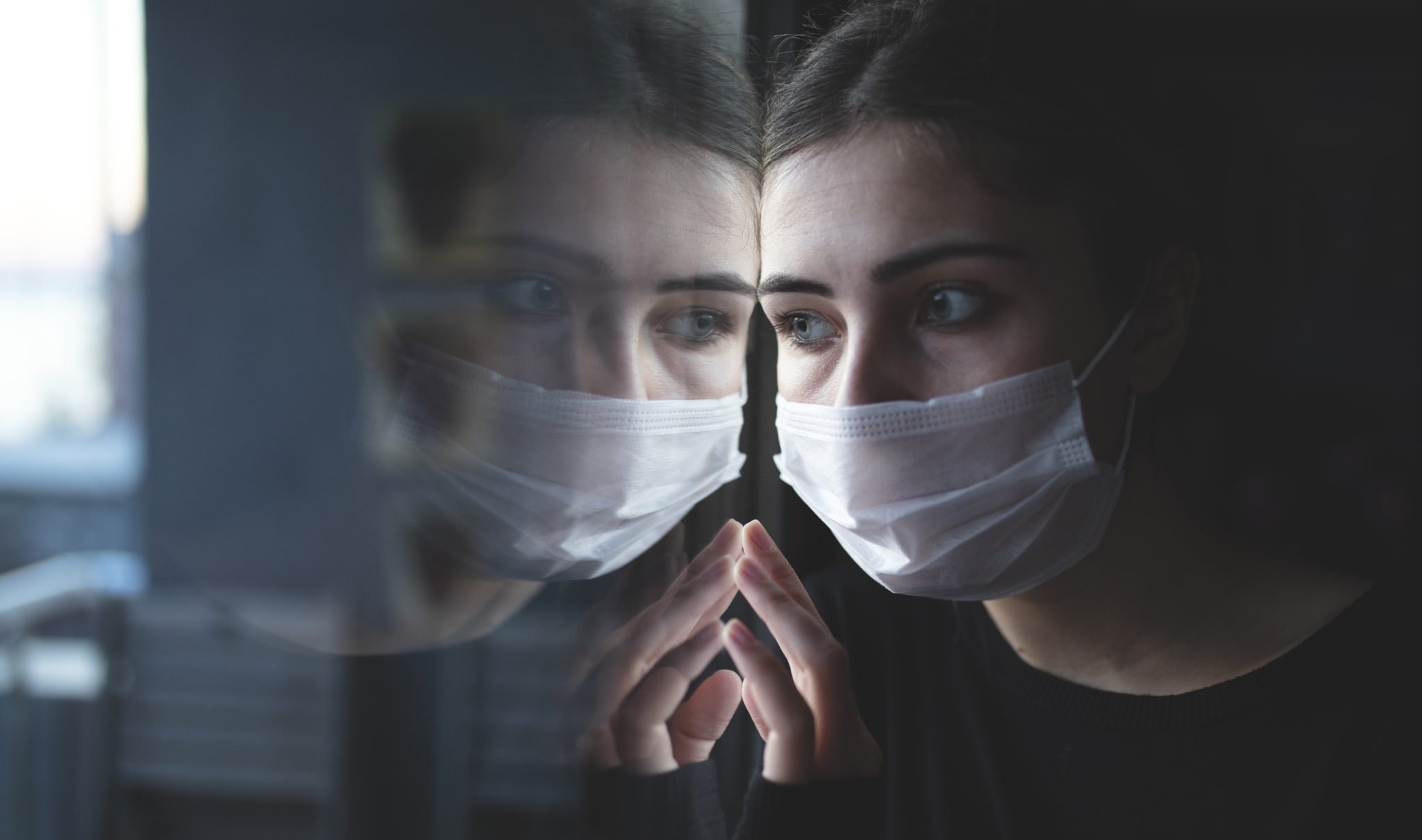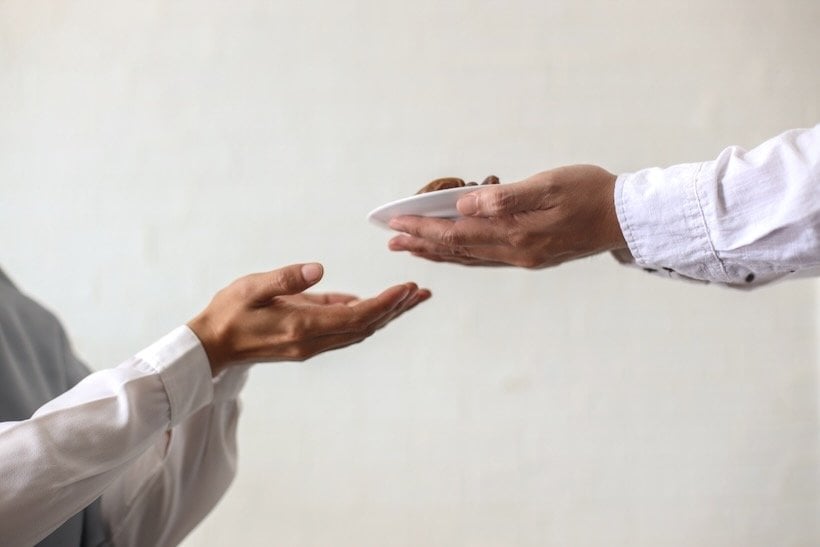It’s coming.
Like a wave born far out at sea but inescapably headed towards the shoreline, health care experts are bracing for a surge in demand for mental health services stemming from COVID-19. In the wake of the pandemic comes a health crisis that America—and the world—will be grappling with far after the virus itself is under control. The grief of lives lost or upended, the trauma and stresses associated with an abrupt change in the way we live, the loneliness and sense of isolation that has affected so many, the anxiety of the unknown and the fear of what might be next—many experts are united in their conviction that it will all come cascading down onto a health care system already overburdened as a result of the coronavirus. The forthcoming mental health crisis will likely be something that this nation is still dealing with years from now; perhaps its impact will be shouldered by an entire generation of Americans for the rest of their years, much like how those who lived through the Great Depression of the 1930s carried its vestiges with them throughout their lives, hardened against the evanescent and transitory nature of prosperity itself.
Mental health will undoubtedly be the long tail of COVID-19. Worth was curious to learn more about how leaders across health care are looking at the coming mental health crisis and to get their perspective on what’s next. We sought out 13 experts from across the country, each one bringing a unique perspective to the discussion in an effort to stitch together a tapestry that does justice to the towering challenges ahead.

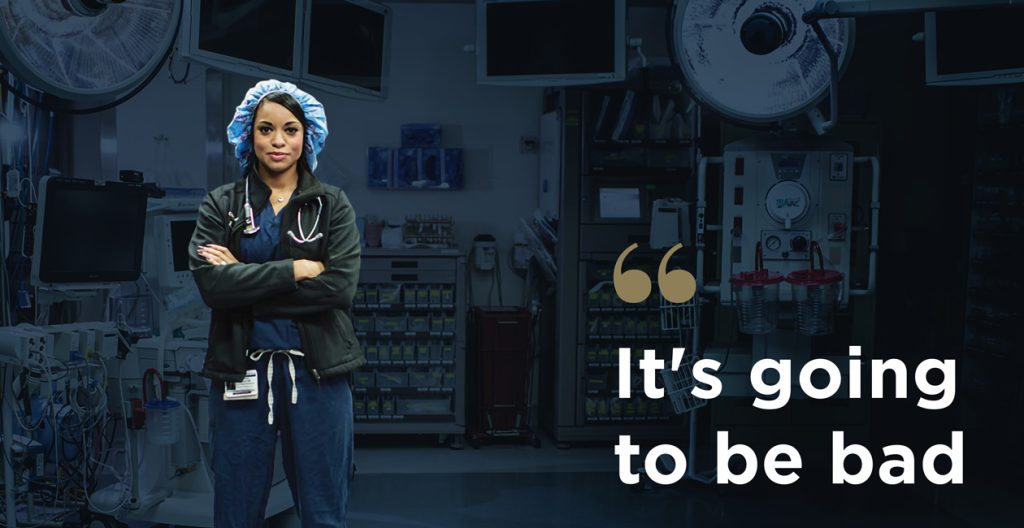
Ebony Hilton, MD
Associate Professor of Anesthesiology and Critical Care Medicine at the University of Virginia, Charlottesville, Va.
Dr. Hilton has become a frequent voice in primetime on MSNBC, bringing frontline reports from the ER about the health care inequities that COVID-19 has laid bare, disproportionately affecting people of color.
“It’s going to be bad. The looming mental health crisis will be the pandemic’s longest surviving legacy, and our healthcare infrastructure is far from being equipped to effectively contend with what we’re dealing with today, much less what’s around the corner. Unfortunately, for communities of color, we will be dealing with an array of different mental health issues like a looming foster care crisis. The pandemic’s disproportionate impact on African-American and Latino communities is best captured by one small but massively important statistic: Black and Hispanic children are experiencing the death of a parent or caregiver at twice the rate of Asian and white children. Just think about the mental health impacts of being orphaned by the pandemic.”
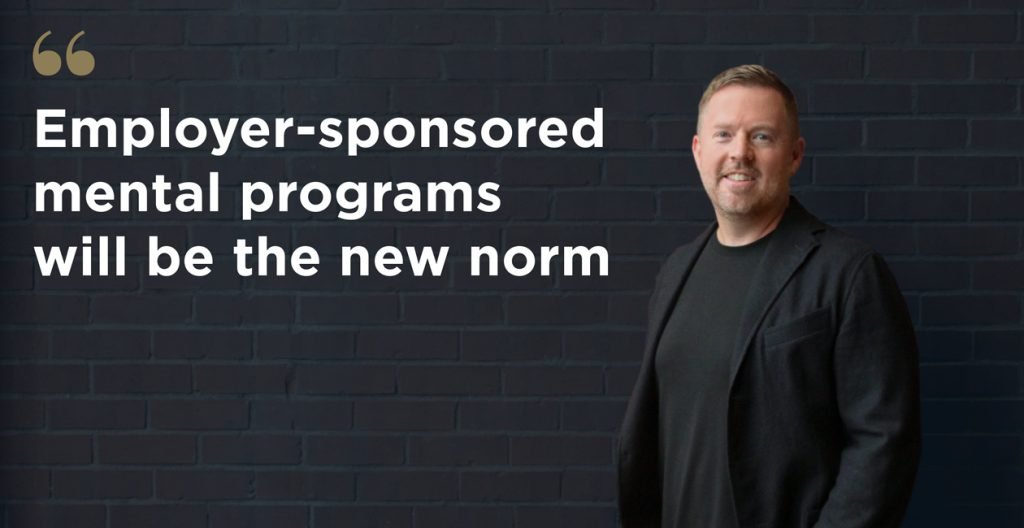
Dale Cook
Chief Executive Officer of Learn to Live, one of the country’s leading digital mental health platforms, Minneapolis, Minn.
Dale Cook spent a good portion of his youth growing up in Colombia where his parents were missionaries. And today, as he helms one of the country’s fastest-growing CBT (cognitive behavioral therapy) health care platforms, this purpose-driven desire to serve others is still evident in his work with Learn to Live. Cook is also a recipient of the Health Innovators Fellowship at the Aspen Institute, the famed leadership network that brings together a range of global leaders to tackle society’s most pressing issues.
“There is no question that mental health problems continue to rise dramatically during this time. We also know that many of us who may be experiencing a mental health crisis as a result of the pandemic will either not immediately recognize the problem or may not yet be ready to address it—which means that we’ll continue to see a tremendous need for care long after the initial wave of COVID subsides. This long tail, exacerbated by an unnecessarily complex health care system, and coupled with a dearth of mental health care providers, is creating a life-and-death pandemic in its own right. Heightened demand for the entire range of mental health services that really work—from coaching, to CBT, to psychiatric services—will continue to drive growing reliance on credible and proven digital solutions. Spiking demand for mental health services is already putting additional pressure on health plans and employers to increase access to care. For employers, providing digital mental health resources is quickly moving from ‘nice to have’ to ‘must have.’ Coming out of COVID-19, employer-sponsored mental programs will be the new norm.”

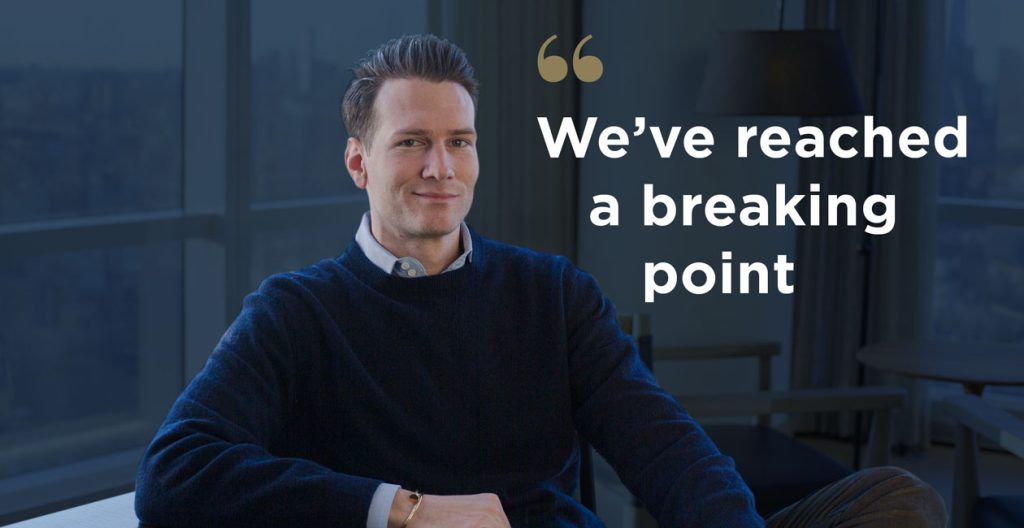
Robert Krayn
Chief Executive Officer of Talkiatry, one of the country’s leading digital mental health platforms, New York, N.Y.
Eyeing surging demand for psychiatric care just as the pandemic was digging in, Robert Krayn launched Talkiatry in April of 2020 to provide accessible in-network psychiatric care. The technology-driven service provides mental health care on an outpatient basis via robust and secure telehealth, as well as in-person care.
“Before COVID-19, the mental health care system was fractured, and now that we’re in midst of a devastating global pandemic, we’ve reached a breaking point. Our collective mental health has hit a 20-year low. We’re seeing an alarming escalation in the rates of depression and anxiety, and even an increase in children visiting the emergency room due to mental health crises. Simply put, we don’t have enough psychiatrists to help those who need it. By 2025, there could be a shortage of over 15,000 psychiatrists in the U.S. alone. There are huge swaths of our country that don’t have any psychiatric professionals at all.”
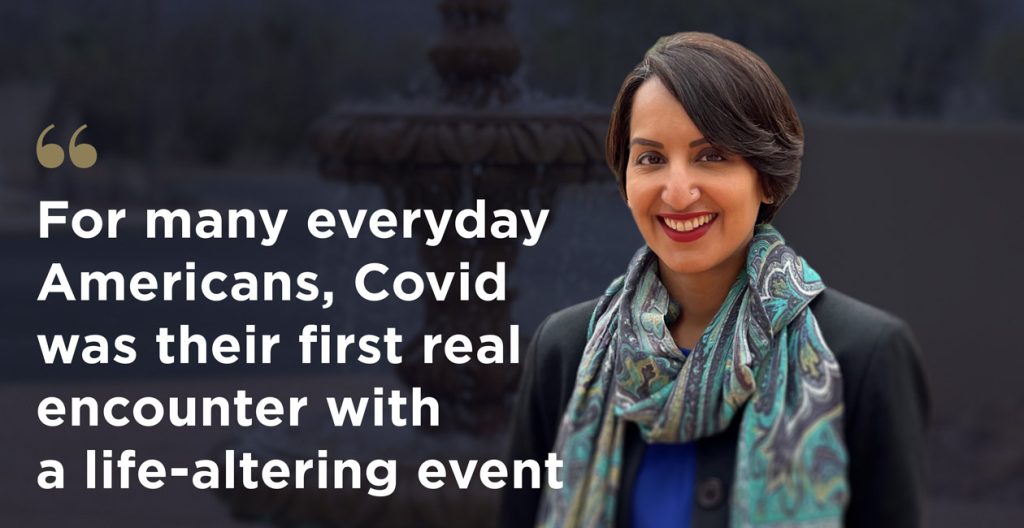
Jasleen Chhatwal, MD
Chief Medical Officer at Sierra Tucson, one of the nation’s most revered treatment centers for mental and behavioral health, Tucson, Ariz.
Dr. Jasleen Chhatwal, a distinguished psychiatrist and the chief medical officer at Arizona-based Sierra Tucson, believes that, much like those who lived through the Great Depression, the stinging impact of COVID-19, coupled with the overall social and political tumult of 2020, will be something society as a whole will be grappling with for years to come. “We all approach stress and trauma through our own personal life experiences,” advises Chhatwal who grew up in the Indian state of Punjab—an area that was rife with conflict in her youth. “For someone like myself who, even as a child, was exposed to conflict, the idea of having to wear a mask or stop going to restaurants seems like nothing more than a minor inconvenience. However, for those who have never really had much stress or psychological trauma, being asked to give up socializing with friends for sustained periods of time, might leave a deep mark on the psyche—one that will take time to heal.”
“By in large, I think that the psychological impact of COVID-19 on Americans can be quite a bit worse than on many others around the world who have lived in inherently less stable environments. First, the death toll here is so much larger, so naturally the grief associated with that loss will impact many more people. But even for those not impacted by the loss of loved ones, Americans will likely stand to suffer much more than their counterparts in other parts of the world where, either due to armed conflict, poverty and economic instability, or any other number of socio-cultural vectors, people may already have developed a level of ‘stress inoculation,’ which can enhance resilience. Although this is something of a generalization, there is a subset of Americans, particularly the upper class, who have had lower stress exposure in their lives up until 2020. It’s why the impacts of COVID may hit them from a mental health perspective so much harder. For many everyday Americans, COVID was their first real encounter with a life-altering event. They were forced to change their way of living, almost from one day to the next.”
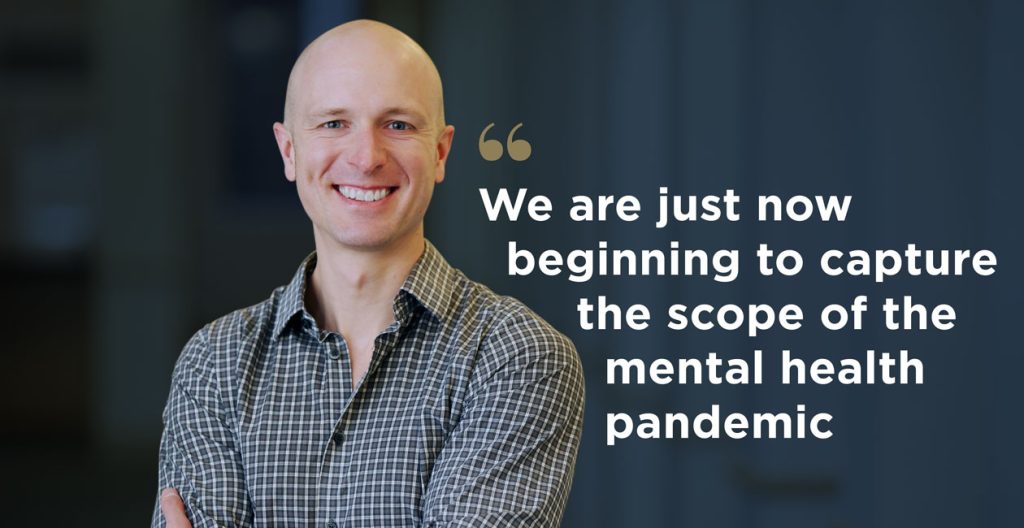
Jon Pearce
Chief Executive Officer of Zipnosis, one of the country’s leading telehealth delivery providers for hospital systems and health plans, Minneapolis, Minn.
Jon Pearce has been evangelizing about the benefits of telehealth for years and is something of an ‘OG’ in the space. He started Zipnosis in 2008, long before most doctors and hospital systems were even thinking about remote doctor visits. But through sheer force and determination—his LinkedIn page sports his favorite motto, “You don’t get diamonds without pressure”—Pearce had ground out a position for Zipnosis, even before the onset of the pandemic, as one the most sought-after telehealth technology platforms for health systems across the country. But when COVID hit, demand for Pearce and his company skyrocketed, growing by quadruple digits throughout 2020.
“Many don’t realize it, but health care is up against two pandemics right now—one we talk a lot about, COVID-19, and another we aren’t, the mental health crisis stemming from the pandemic. While we’re making strides in the fight against the virus, we are just now beginning to capture the scope of the mental health pandemic. Even before COVID, the need for behavioral health resources was outpacing market capacity—and the past year has only exacerbated this trend. By integrating virtual care into behavioral health, the goal isn’t to replace the in-person, human-to-human care many of these patients desperately need; instead, it’s about optimizing care with virtual screenings and touchpoints, and leveraging telebehavioral solutions to break down barriers that include social stigmas, provider shortages and time commitments related to traditional in-person sessions.”
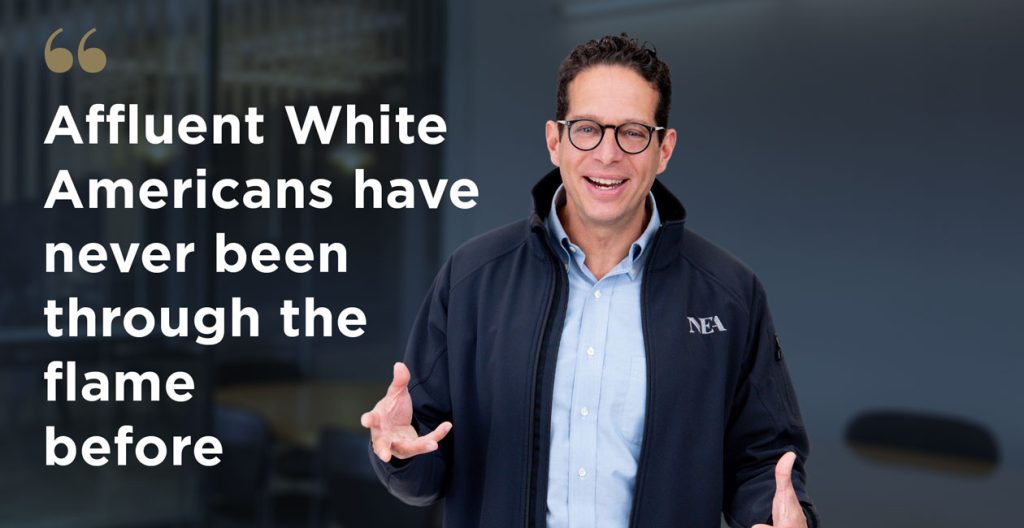
Ben Narasin
Venture Partner at NEA, one of the one of the world’s largest venture capital firms, Menlo Park, Calif.
Ben Narasin is a legend in Silicon Valley, having made successful investments in Lending Club, Dropcam (sold to Google which rebranded it as Nest), Kabbage and countless others. His take on America’s level of preparedness for the wave of coming COVID-related mental health needs is indeed bleak.
“I don’t think I’m going out on much of a limb when I say that Americans are largely spoiled and privileged. This pandemic has hit us all hard, but specifically for those who have never had their world turned upside down by an outside force before, this has been hard to swallow. I believe that whereas people of color suffered the most physical impact from COVID, it will be affluent white Americans who will bear the brunt of the mental health crisis that ensues. You know the old saying ‘through flame, iron becomes steel’—well, most affluent white Americans have never been through the flame before. This mental health crisis is going to test us. Digital mental health apps will fill in some gaps, but true psych AI is at least a decade away, so we are going to have to be creative in how we address the high level of demand that is coming. It will be messy, as different players experiment with mixed digital and in-person solutions for the time-being. But this mental health crisis will be with us for years to come. Many people will be dealing with this for a long time. Once you have frostbite, you never forget the cold.”
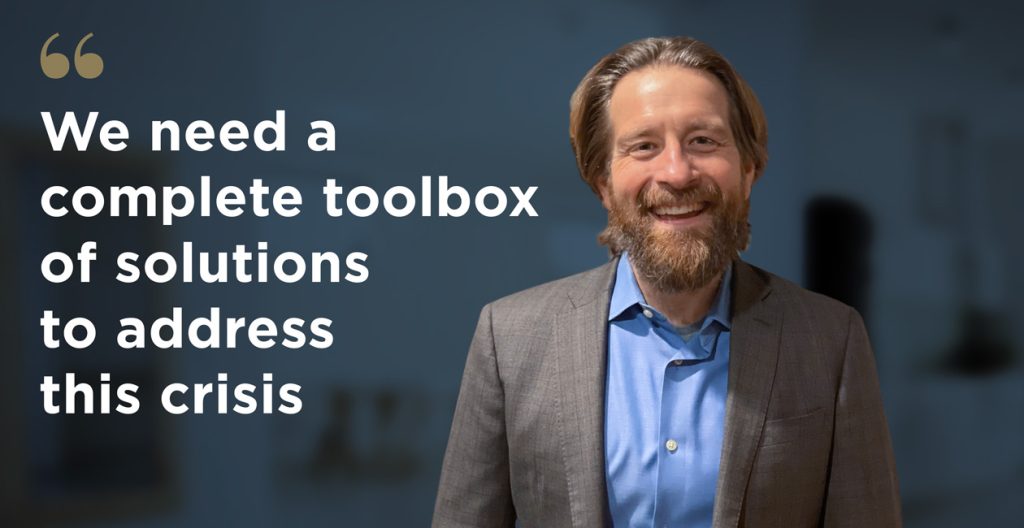
Brian Kalis
Managing Director for Digital Health and Innovation at Accenture, a globally recognized management consulting firm, Minneapolis, Minn.
Brian Kalis is one of the health care industry’s most important voices on all things tech and digital related. He has emerged as the go-to expert who sits at the crossroads of health care and technology and has been a strong proponent for using digital health solutions and telehealth to deliver more robust mental health services. He sees the ensuing mental health crisis as a challenge both on the demand and supply side.
“Data from before the onset of COVID indicates that nearly 58 million adults and eight million youth between the ages of six and 17 in the U.S. have mental health and/or substance use disorders, yet only 43 percent of affected adults are receiving treatment for them. Intuitively, we all know that this number surely increased in light of the immense stress we are all under right now; we need a complete toolbox of solutions to address this crisis. In addition to the overwhelming demand for more care, we have a challenge of supply—there is a shortage of behavioral health providers. Many virtual health solutions allow people to get the mental health support they need through self-service via online cognitive behavioral therapy and behavioral health chatbots with escalations to mental health professionals as needed, so they can help patients immediately and help practitioners triage. To be clear, digital solutions aren’t for everyone, but they are another arrow in the quiver.”
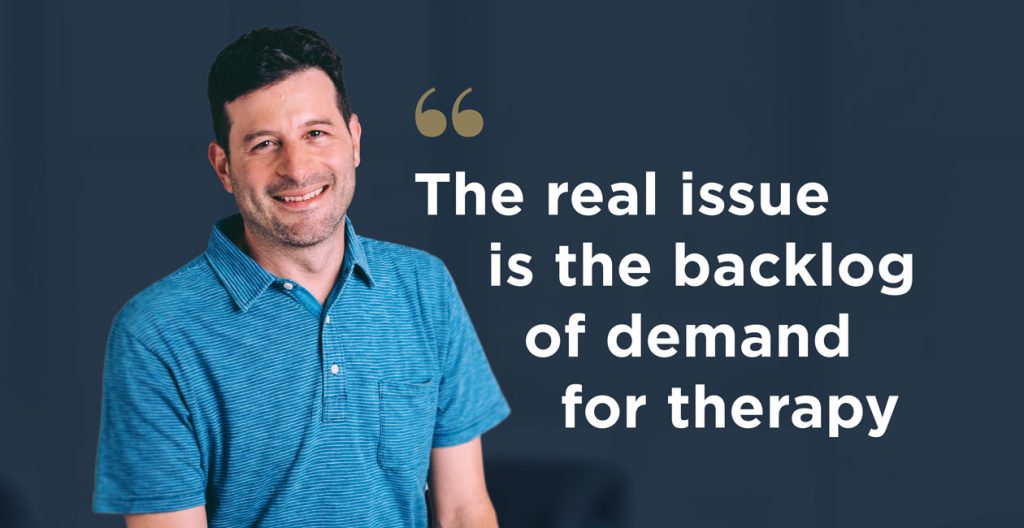
Russell Glass
Chief Executive Officer of Ginger, a leading on-demand mental health support platform, San Francisco, Calif.
Russell Glass leads Ginger, a company that has raised over $120 million in venture financing to address the fundamental supply and demand imbalance in the delivery of mental health. Case in point: His company recently ran a small study, calling around the Bay Area looking to make appointments with psychologists and licensed therapists only to find that of the 150 doctors they reached, only 6 percent had openings within four weeks from the date of the call. “We can’t go on like this,” reflected Glass. “Technology will have to play a bigger role going forward.”
“There is no doubt that the long tail of COVID will be the mental health crisis that comes in its wake. Across every age cohort, the incidence of mental issues has seen a near meteoric rise since the onset of the pandemic. Take for example the rate of suicidality among teens and young adults ages 13 to 25 which are way up, exacerbated in some cases by parents who themselves are struggling with the emotional and oftentimes financial toll associated with this pandemic. It’s really a perfect storm. I think that once we are vaccinated, there may be some easing of tensions, but it will still be a period of tremendous uncertainty. Although the more acute stresses will dissipate over time, the real issue is the backlog of demand for therapy. If you live just about anywhere in the U.S., good luck getting an appointment with a therapist. Most are booked weeks or months out. Some aren’t even making appointments for new patients at all. It’s a real mess and it’s clear that digital solutions will have to play a lead role in taking on some of the less severe cases and escalating them where appropriate.”
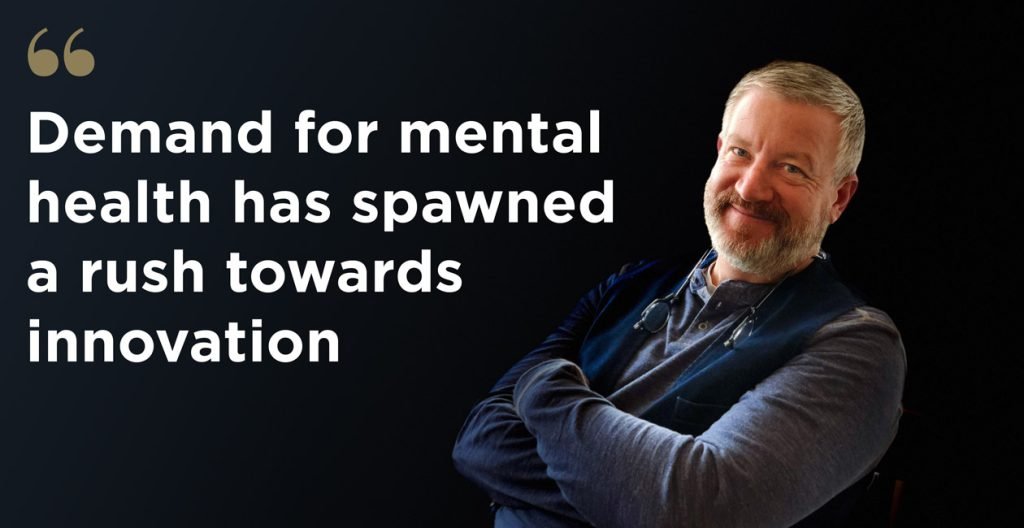
Robert Waggener
Chief Executive Officer of Promises Behavioral Health, a nationwide network of mental health and addiction treatment centers, Nashville, Tenn.
Up and down the Eastern seaboard, across the South and as far west as Texas, Promises Behavioral Health has established itself as one of the nation’s premier clinics for addiction, substance abuse and mental health issues. Robert Waggener has been a vocal advocate for the behavioral health community nationwide.
“Well before the pandemic took hold, there was already a growing gap between the need for more access, affordability and attainability of mental health and substance use services. The onset of COVID-19 has only accelerated the size of that gap. In fact, during the pandemic, we saw a number of providers close their doors—some permanently—as they found it impossible to operate amidst the shutdowns. There is no doubt that the exponential increase in demand for services in the midst of the pandemic will have far reaching effects, both positive and negative. On the negative side, we see a sudden rise in suicide and overdose rates, but one of the positive effects of this crisis is an increase in awareness at a national level that we have a secondary health emergency that needs to receive more resources at the state and federal level. The onslaught of demand for mental health has spawned a rush towards innovation and a loosening of some of the more nonsensical regulations that have hampered the mental health space.”
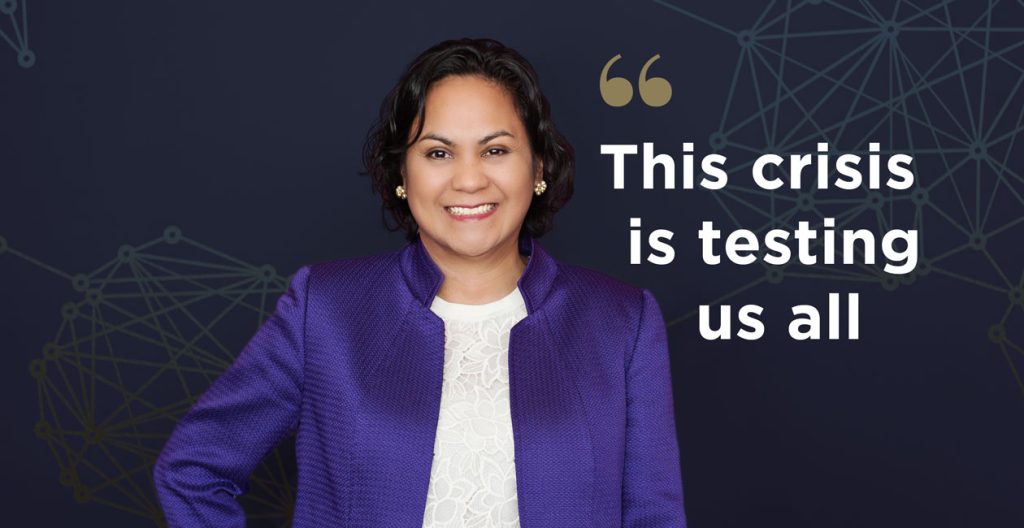
Liwanag Ojala
Chief Executive Officer of CaringBridge, the world’s largest community-based health care journey support platform with over 43 million active users, St. Paul, Minn.
As a not-for-profit health journey platform, CaringBridge has provided a lifeline of support and community for tens of thousands of families that have been impacted by the coronavirus. Since the onset of the pandemic, Ojala has empowered the platform to support families dealing with the long-haul effects of COVID. Anonymized CaringBridge journals analyzed by researchers from the University of Minnesota and the Mayo Clinic have found that the organization’s community-based ‘framework for healing’—one that leans on patients’ faith and spirituality, as well as family and friends—has made a positive and measurable impact in helping users find their own paths toward healing, regardless of health outcome.
“The mental health burden of the pandemic has been vast and unrelenting, affecting not only those infected with the virus, but the mental health of those around them, their family and loved ones, their coworkers, neighbors and friends. Of course, everyone deals with it differently, but if you combine the stresses directly related to someone getting sick or dying from the virus and then layer that on top of all those suffering from the other stresses emanating from the pandemic—namely the economic fallout—I would go as far as to say we have twin pandemics going on in this country. Unfortunately, there just are simply not enough mental health resources to meet demand. The nonprofit world has been doing its best to step up during these trying times, and CaringBridge has seen growth as people search for outlets for sharing their COVID-19 journeys, but it’s not nearly enough. This crisis is testing us all.”
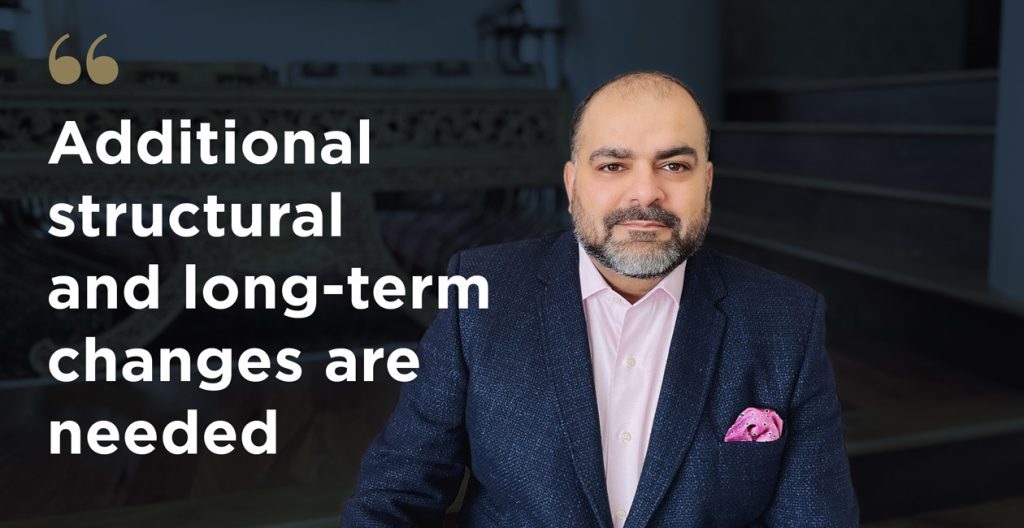
Sameer Badlani, MD
Chief Digital Officer of Fairview Health System, one of the largest hospital systems in the Upper Midwest, Minneapolis, Minn.
It’s not often that a large hospital system’s technology czar is also an MD, which is why Fairview Health System’s Sameer Badlani has emerged as a national go-to figure for issues that sit at the crossroads of health care and high tech.
“In conjunction with the ongoing COVID pandemic and much delayed recognition of the pandemic of systemic racism, our society is dealing with a third pandemic—and one that is in some ways a byproduct of the first two: a mental health crisis. Recent studies, including one from the CDC, show a significant uptick in depression, substance abuse and suicidal ideation. The combination of the emotional and economic impact of COVID has been compounded by social isolation. Frontline clinical workers, minorities, seniors and other economically challenged sections of our society have been more severely impacted. We must leverage all the physical and digital tools at our disposal to connect and support our families, colleagues and patients. While it is encouraging to see all the rapid innovation, additional structural and long-term changes are still needed. We need programs that better leverage community resources, incentivize a more efficient payor and provider ecosystem, and foster a host of policy changes. Digital innovation is essential; however, without significant changes in regulations, health care economics and payor support, we will not be able to serve our communities in the way they need us.”
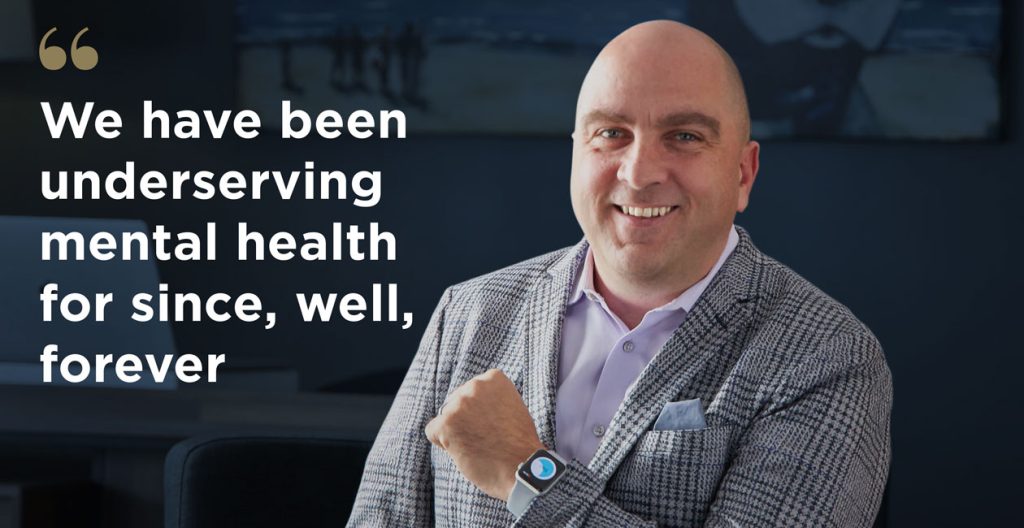
Grady Hannah
Chief Executive Officer of NightWare, the first FDA-approved digital therapeutic intervention for those suffering from PTSD, Minneapolis, Minn.
Grady Hannah is a force of nature. He has been a relentless advocate on issues surrounding better mental health treatment for veterans and how technology can not only fill in gaps in care but provide new therapies and treatments that human-only intervention cannot.
“Are we looking at a tsunami of mental health crises rising on the horizon? Yes. But it’s not like we didn’t already have a pretty big mental health care gap to begin with. It’s well-established that the medical profession has had a historic predilection to treat disease that you can see. Stigmatization plays a role as well. We have been underserving mental health for since, well, forever. Although one might argue that the incidence of PTSD by soldiers who have experienced combat might be more acute, it’s fair to say that many Americans—particularly those who up until 2020 lead rather stress-free lives—will find themselves dealing with the emotional and psychological aftermath of 2020 and 2021 for years to come. Many experienced invasive treatments like intubation, while others lost loved ones, and many lost their jobs and their life savings. There is no question that we will be dealing with broad-based mental health issues in the wake of COVID-19 for some time.”
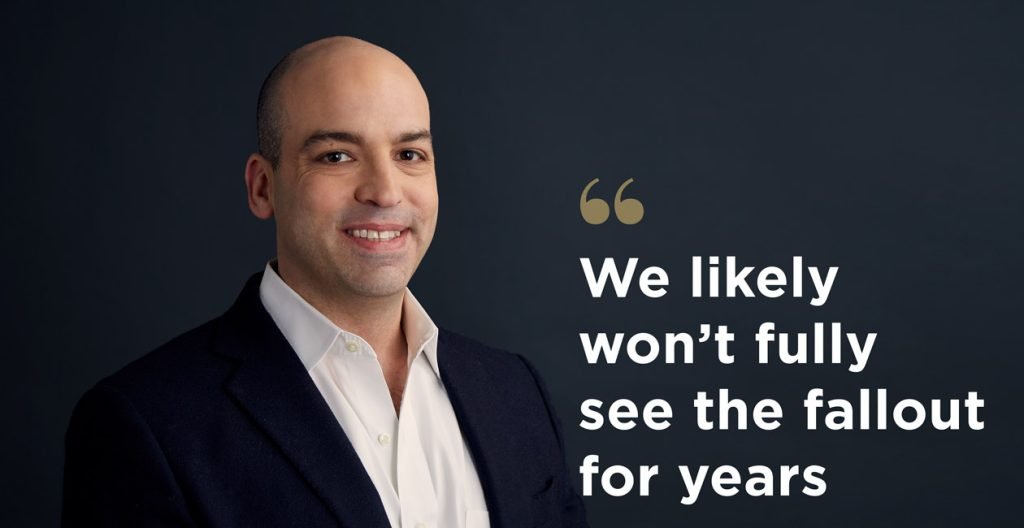
Sebastian Seiguer
Chief Executive Officer of emocha, a leading health care technology company solving for medication non-adherence, Baltimore, Md.
Sebastian Seiguer believes that in all health care—particularly mental health—engagement and support are essential to success, yet the mental health sector is still riddled by ‘old school’ thinking that feels that this level of engagement is impossible to replicate in a virtual setting. “We take pride in the level of communication and support we provide patients,” says Seiguer. “But it takes a lot more than a simple video connection to engage with patients; it’s incumbent upon us to find equally compelling ways to maintain human connection through technology.”
“We saw virtual care explode during COVID-19, both in our industry and company; visiting a doctor’s office felt unsafe or impossible. In mental health care in particular, patients show low rates of adherence to psychiatric medications. Due to the pandemic, which has led to more relaxed regulations across the board as it related to virtual care and telehealth, there are now millions of Americans who are becoming more accustomed to the idea of using technology to support their care. Delivering mental health care via telehealth may in fact be one of COVID’s biggest enduring legacies, but it’s society’s most vulnerable patients—often marginalized populations with legacy mental health issues who have struggled with health care access pre-pandemic—that we still need to worry about. The mental health burden of the pandemic is immense; we likely won’t fully see the fallout for years.”

